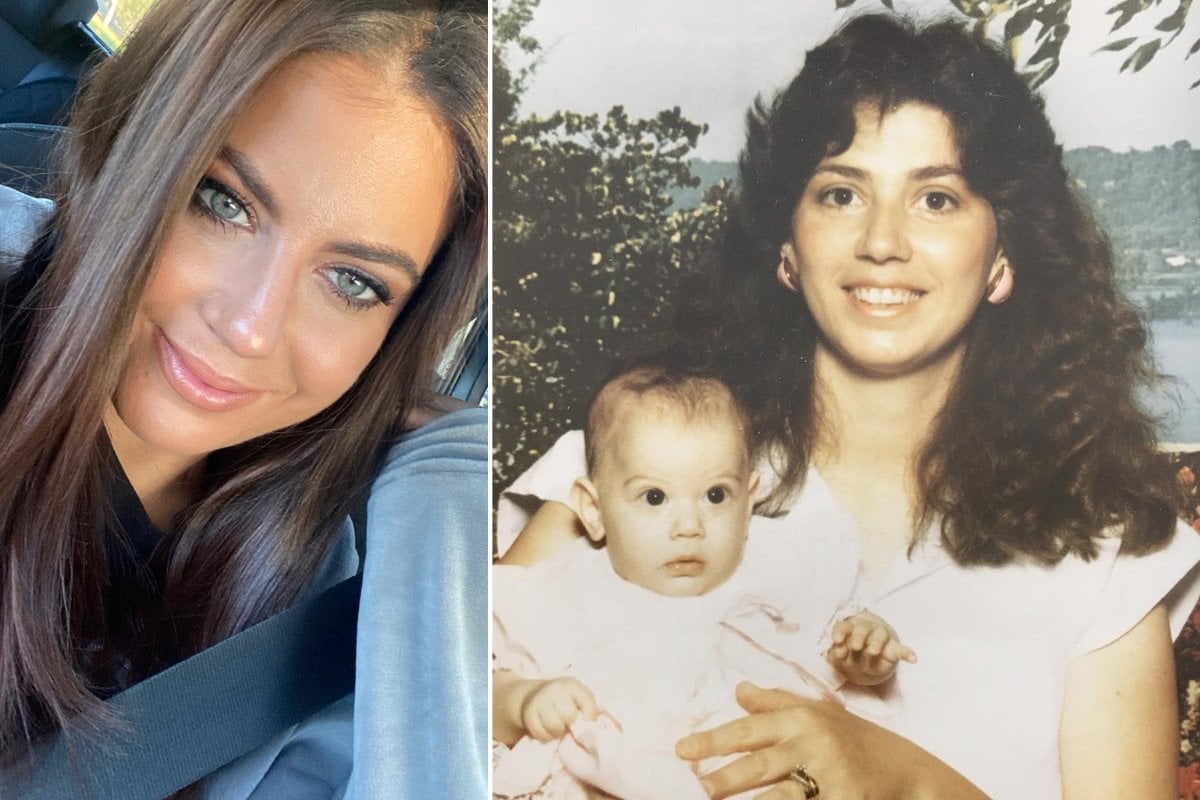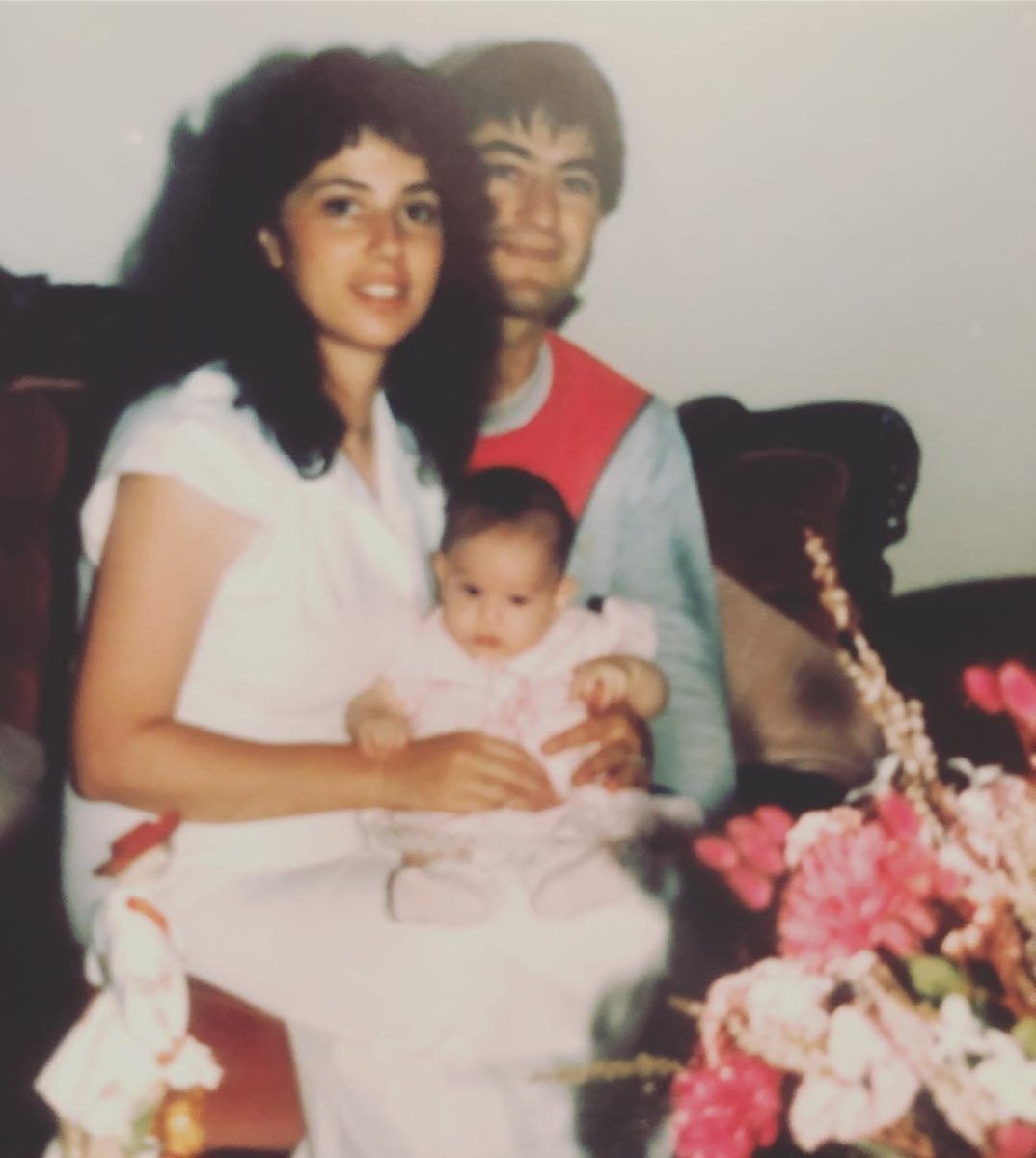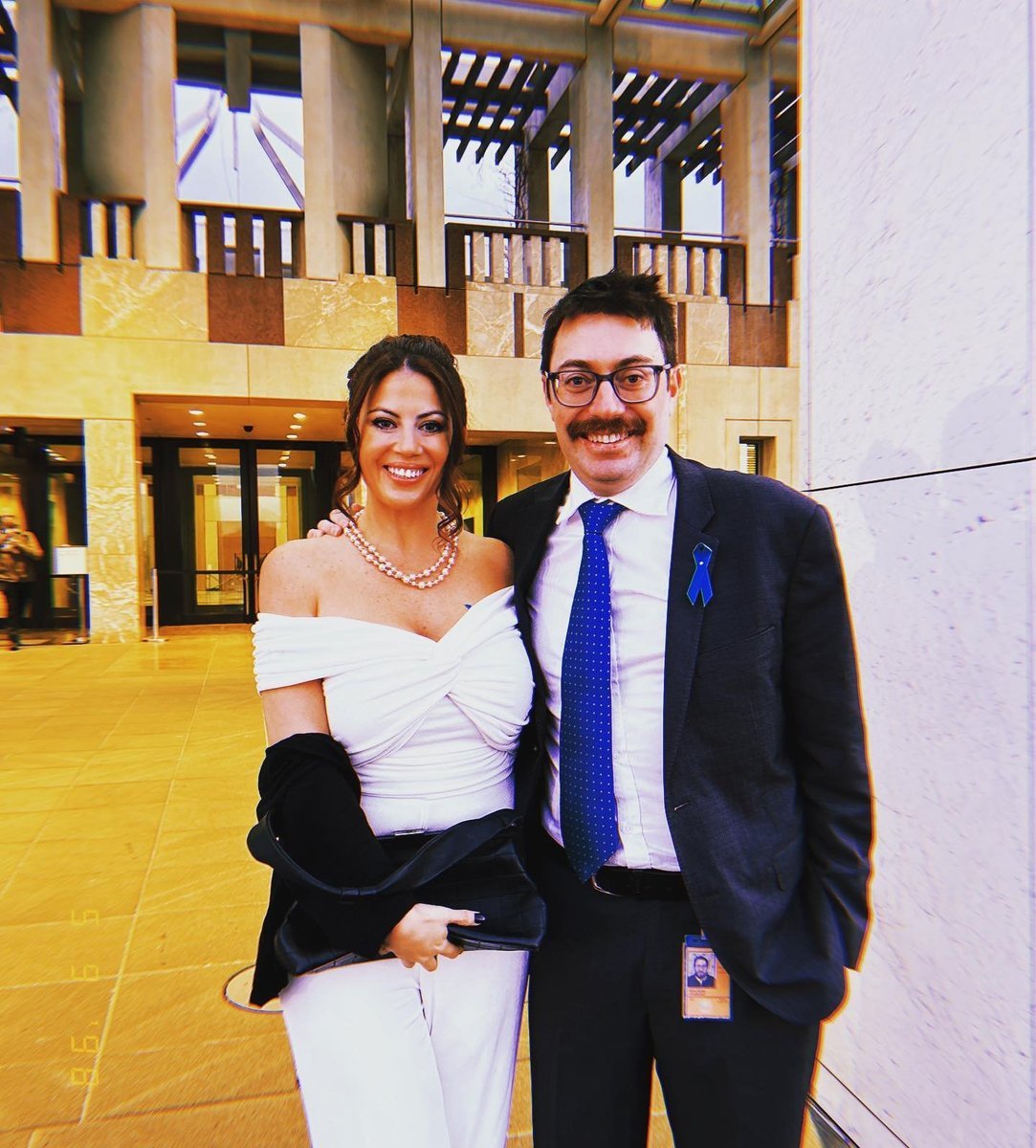
My beautiful mother died of ovarian cancer when she was just 29 years old. I had just turned three and my brother was only six months old.
Given my age, I unfortunately don't have any distinct memories of my mum, although my Nonna told me that when mum died, and they said, "Go and say goodbye to your mother," I asked if she was going to get my Humphrey (I had just lost my beloved Humphrey B. Bear). I vaguely remember giving her a cuddle goodbye.
When Mum died, we lived with my grandparents for a bit — my Nonna and Nonno on both sides were beyond instrumental in our upbringing — but Mum's death was never discussed. I think everyone was too traumatised. Apart from knowing my mum died young, we just kind of got on with things.
 Antoinetta Damiano with her husband, Angelo, and their daughter, Sabrina. Image: Instagram/@sabspace
Antoinetta Damiano with her husband, Angelo, and their daughter, Sabrina. Image: Instagram/@sabspace


